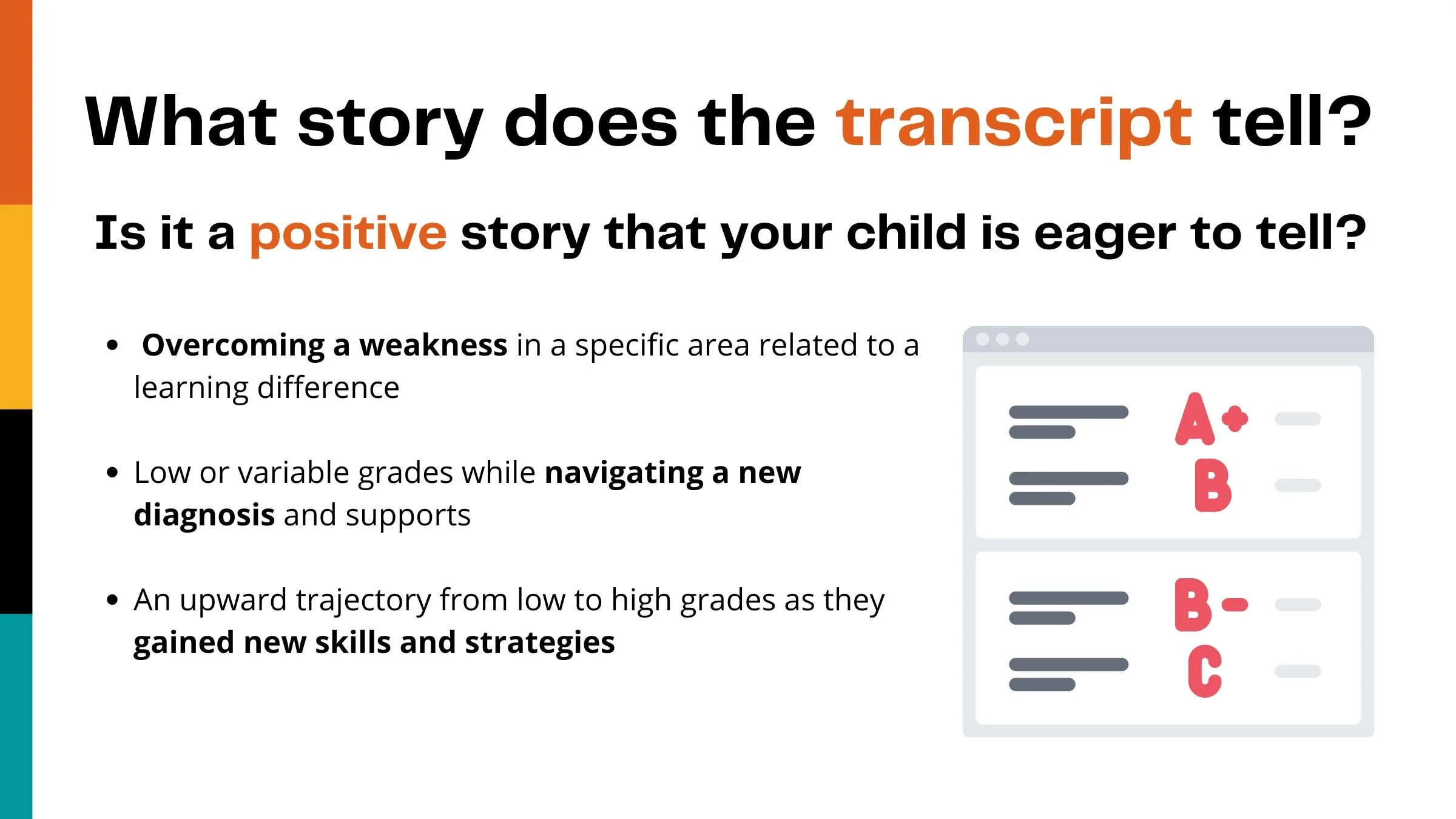Navigating College Applications: Should You Disclose Your Learning Disability?
Common Questions About Disclosing Learning Disabilities
The college application process is a complex task, especially for students with learning disabilities and learning differences. One of the most common questions that arise is whether – and how – to disclose a learning disability in the application.
In this blog post, I’ll address frequently asked questions about disclosing learning disabilities, explore how your high school transcript can help tell your unique story, and provide essential tips for essay writing and managing the college application process.
Am I required to disclose my learning disability in my college application?
No, you are not required to disclose your learning disability in your college application. In fact, it’s illegal for colleges to ask about your disability status.
The only exception is when applying to colleges specifically designed for students with learning disabilities. Colleges generally offer three levels of support, with Landmark College, in Vermont, and Beacon College in Florida providing the most structured and comprehensive approach.
Does disclosing a disability in their application give my child accommodations in college?
No, disclosing a disability in your application does not automatically grant you accommodations in college. To receive accommodations, you need to go through the college’s Disability Services or Accessibility Services office. This process is separate from your application, so you can still get the necessary support even if you don’t disclose your disability in your application.
The bottomline: Disclosing is a decision that is entirely up to you. You can still get accommodations if you don't disclose a disability and there's no clear advantage or disadvantage.
Your transcript tells a story. What story does it tell about you?
Your high school transcript is more than just a record of grades; it tells a story about your academic journey. Here are some positive perspectives to consider:
Subject Performance: If your math grades are lower than other subjects, is there a story of resilience or a strategy you developed to overcome challenges?
Grade Trends: If your grades fluctuate, consider the underlying reasons. Perhaps you were adjusting to a new diagnosis or treatment. Sharing this context can be powerful.
Upward Trajectory: An upward trend in grades can highlight your growth and the effectiveness of new skills and strategies you’ve adopted.
What is the Student's Role in the College Application Process?
For students with learning disabilities, the college application process can be challenging, requiring skills in executive functioning, time management, and self-advocacy. Here are three key areas to focus on:
Asking for Help: Encourage students to speak up when they need assistance, ask clarifying questions, and communicate respectfully with adults. Students should take the lead in these interactions.
Staying Organized: Find a system to track deadlines, manage tasks, and keep up with emails. Organization is crucial to staying on top of the application process.
Building Self-Awareness: Students should work on understanding their strengths and learning preferences and be able to articulate this self-awareness effectively.
What is the parent’s role?
The parent’s role is to be the passenger as much as possible. They can be right there with the student, but the parent’s goal is to gradually offload more of the work that they may be used to doing. Here are some strategies for how parents can help students navigate the college application process:
Create space by designating a dedicated time to talk about college.
On the college essay, offer to be a sounding board or fact-checker.
On the college essay, model what self-reflection looks like by sharing experiences or vulnerabilities that you’ve not shared before.
Speak honestly about about family finances or other non-negotiables. Be open and transparent about what goes into making the college decision.
Model executive functioning skills. Parents shouldn’t complete tasks for the student, but they can sit with them, do a practice run-through or help contact schools.
Be a gentle nudge. Remind the student of goals, values and upcoming deadlines,
Navigating the college application process with a learning disability involves careful consideration and strategic planning. Whether or not to disclose your disability is a personal choice, but remember that support is available regardless of your decision. Focus on telling your unique story through your transcript and developing the skills needed for a successful transition to college.

